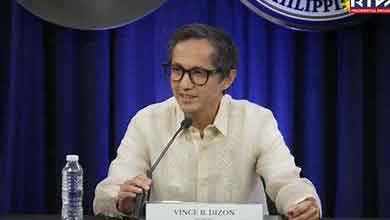The Department of Finance (DOF) announced plans to enhance climate-disaster risk finance and insurance (CDRFI) mechanisms in the Philippines, in partnership with the Global Shield Secretariat and the Institute for Climate and Resilient Cities (ICSC).
DOF Undersecretary Maria Luwalhati Dorotan Tiuseco said the agency “aims to craft a proposal for a proactive solution, to be supported by Global Shield financing vehicles—a source of funding poised to bolster our financial defenses against the adverse effects of climate change and mitigate loss and damage, especially in the most vulnerable segments of our society.”
Tiuseco reiterated this message during the Global Shield Country Workshop held on August 13, emphasizing that the Global Shield Against Climate Risks is a joint initiative of the G7 and the Vulnerable Twenty Group of Finance Ministers (V20). The initiative aims to strengthen financial protection in climate-vulnerable countries by providing more and better pre-arranged finance.
As the national authority responsible for mobilizing financial resources for climate action, the DOF is currently leading the development of the Climate Finance Strategy and updating the Disaster Risk Finance and Insurance (DRFI) Strategy.
The Global Shield Secretariat and ICSC are assisting the DOF through the In-Country Process, which involves a multisectoral stocktake and gap analysis to produce a comprehensive assessment of the Philippines’ CDRFI landscape.
According to the DOF, the workshop convened stakeholders from government, civil society, non-government organizations, the private sector, academia, and bilateral and multilateral development partners to introduce the initiative and identify priority action areas for scaling up pre-arranged finance solutions.
Pre-arranged finance forms an integral part of the government’s approach to disaster risk management and climate change adaptation, the DOF said. The Philippines has already implemented emergency funds, contingent financing, and sovereign insurance mechanisms under the 2015 DRFI Strategy.
“However, a gap remains in establishing CDRFI as a cost-effective and accessible mechanism to address climate-related losses and damages faced by vulnerable people and communities,” the agency added.
Tiuseco said the Global Shield project will complement and be integrated into the country’s broader national efforts.
“By investing in CDRFI tools, we are not just bracing ourselves for the next storm—we are making an investment in long-term economic stability,” she said.
The sessions yielded recommendations for innovative instruments, including parametric insurance and micro-insurance. Strategies were also explored to fully utilize Local Government Units’ (LGUs) Disaster Response Funds for anticipatory financing.
“Resilience is not defined by the lack of vulnerability, but by our capacity to withstand shocks and adapt well in the face of adversity. There will always be challenges over the horizon, but with a strategic approach, we will overcome them,” Tiuseco said.
German Ambassador to the Philippines Andreas Michael Pfaffernoschke also expressed support for the Global Shield in-country process, emphasizing the role of pre-arranged finance in reducing the fiscal impacts of climate and disaster risks.
“As one of the G7 countries, Germany is a funding partner of the Global Shield Against Climate Risks,” he said.





